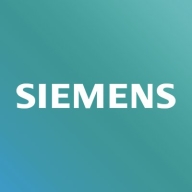

Jira and Polarion ALM are prominent in the project management and requirements management category, respectively. Jira seems to have the upper hand in flexibility and integration capabilities, making it appealing for various organizational needs.
Features: Jira supports Agile methodologies and offers customizable workflows. It provides extensive options for issue and bug tracking, with robust integration capabilities. Polarion ALM excels in requirements management and provides strong traceability across the development lifecycle, ideal for sectors requiring comprehensive documentation.
Room for Improvement: Jira could improve its customization complexity and search functionalities. It's less robust for large enterprises and lacks built-in requirements management. Polarion ALM faces challenges with easy integration with external tools and could enhance task management and reporting for broader Agile needs.
Ease of Deployment and Customer Service: Jira offers versatile deployment options, but customer satisfaction leans more toward self-help resources than direct service. Polarion ALM, with private and on-premises deployment, is appreciated for its technical support.
Pricing and ROI: Jira is cost-effective for smaller teams with its cloud offerings. It offers substantial ROI despite higher pricing for large enterprises due to its flexibility. Polarion ALM is more expensive, limiting accessibility for smaller companies but providing strong value in regulated industries.
| Product | Market Share (%) |
|---|---|
| Jira | 12.6% |
| Polarion ALM | 6.1% |
| Other | 81.3% |


| Company Size | Count |
|---|---|
| Small Business | 106 |
| Midsize Enterprise | 56 |
| Large Enterprise | 150 |
| Company Size | Count |
|---|---|
| Small Business | 10 |
| Midsize Enterprise | 3 |
| Large Enterprise | 12 |
Jira is a powerful cloud- and subscription-based application lifecycle and issue management solution. It is designed to aid users both in project management and in resolving any issues that arise at any point in the software development process. It is especially concerned with easing the ability of developers to collaborate.
Jira Benefits
Some of the ways that organizations can benefit by choosing to deploy Jira include:
Jira Features
Real-time notification feature. Users can set Jira so that it offers them notifications that contain critical information in real time. It can send users email notifications when pressing issues have been updated. They can also set it to notify them about tasks that may be due, or other similar events.
Reviews from Real Users
Jira is a powerful solution that stands out when compared to many of its competitors. Two major advantages it offers are its workflow engine and its highly customizable dashboard.
Bharath R., the tool implementation and project management lead at a financial services firm, writes, “I feel the strongest feature of Jira is its workflow engine. It empowers us to automate our workflows within our organization. It's the one characteristic of Jira which I think can help any organization, be it in any domain.”
Uday J., a staff engineer at a computer company, says, “Another thing that I like a lot about Jira is that in the dashboard, you can plug the modules that you want. You can enable certain sections. For example, you can show trend history, open Jira tickets, etc. Some of the managers have created a dashboard for each engineer.”
The world’s first 100% browser-based ALM enterprise solution, which enables seamless collaboration across disparate teams, multi-directionally linked work items, full traceability, accelerated productivity and automated proof of compliance.
We monitor all Application Lifecycle Management (ALM) Suites reviews to prevent fraudulent reviews and keep review quality high. We do not post reviews by company employees or direct competitors. We validate each review for authenticity via cross-reference with LinkedIn, and personal follow-up with the reviewer when necessary.